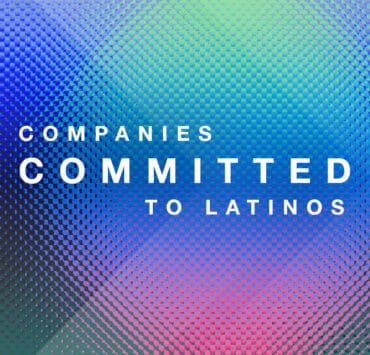|
Getting your Trinity Audio player ready...
|
As chief diversity and inclusion officer and interim chief human resources officer at Premier Inc., Joseph Machicote is responsible for the company’s overall people strategy and leads diversity, equity, and inclusion (DEI) and belonging efforts. As he reflects on his role and the space he’s been in for thirty years, he says his ultimate goal is to work himself out of a job.
“I see DEI as the stuff we should be doing for each other as human beings all the time,” he says. “It’s mind-blowing to me that talking about it has to be a separate job. Culture should be treated as a continuous-improvement strategic objective in the same way we look at finances, marketing, and other things with very intentional efforts behind them. But when most organizations talk about culture, most leaders can’t answer questions about how they’re defining it or enhancing it.”
Since joining Premier in 2020, Machicote has narrowed in on those fundamental culture considerations, understanding that tough conversations about DEI can’t be had without wrestling with them. That’s why, along with his CEO and the rest of the executive team, he helped develop the One Premier Growth Mindset, a framework for how employees should interact with each other and develop the best versions of themselves as they drive the business forward. It consists of six pillars, all of which embrace dignity, respect, and trust as foundational values. He says that blueprint has not only guided the company toward a tangible culture but also moved him closer to his to redefining his career trajectory.
“I see DEI as the stuff we should be doing for each other as human beings all the time.”
Joseph Machicote
“Conversations about things like inequity in pay and communities that are lagging behind others come later, if you don’t have a culture where people, at the very least, respect one another,” Machicote says. “Those are going to be very difficult conversations that are going to yield you nothing if you don’t have that culture.”
He continues, “If we have that foundational culture of dignity and respect, DEI and belonging becomes the battery to this engine because now not only do I want your perspective but I want it from the point of view that you bring it. Men and women, LGBTQ, cisgender, Black, and white are all going to see things different. When we’re able to get together and have different ideas while treating everyone with respect, that creates belonging.”
Machicote’s DEI philosophy is the culmination of a decades-long career that started in a cafeteria washing pots and pans during his first years of college. One day, his manager called him into his office, and they had a conversation that has stuck with Machicote ever since.
“I hated the job and was trying to call in sick as much as possible. I wanted to party, not smell like greasy dishes, and I didn’t see the value I brought to the operation,” he recalls. “But that day, my manager pointed out how important I was in the kitchen operation and that everything in the kitchen started with me. In that moment, something clicked for me. Once the manager helped me change my mindset, it led to a behavior change and I started to perform better.”
He went on to work at the Flik Hospitality Group for twelve years in various operations and HR leadership seats, including director of human resources in the latter half of his time at the company. From there he took on his first diversity and inclusion role as vice president of HR in 1999 and then spent the next decades as a DEI and HR leader for several companies, including Snyder’s-Lance, Erickson Senior Living, and now Premier.
Machicote says leaders who are trying to define culture at their organizations should start with the basic questions. “Ask yourself whether the company embraces dignity and respect. And if not, that’s where your work should begin,” he advises.
One Premier Growth Mindset Pillars
Joseph Machicote explains the six pillars of Premier’s framework
1. Self-Mastery: “We want everyone to have a deep understanding of themselves. It’s also about understanding how we show up to the people around us.”
2. Have “Real Talk” Conversations: “It’s speaking the truth in such a way that the other person receives it and in a way that pulls someone into the conversation instead of pushing them out of it.”
3. Multilevel Trust: “Trust happens when the things I say and do align. And when people trust you and respect you, you can influence them.”
4. Decision-Making: “When you understand how you show up and are able to talk in ways that pulls people in, which fosters trust, we can make better decisions together.”
5. Innovation: “If you have a great idea but I’m constantly shutting you down, you’re going to refrain from sharing your thoughts, opinions, feedback, and input.
6. Change Capability: “When you trust your colleagues, leaders, the organization, the environment, and the culture, change comes easier because you understand that everyone shares the same common, positive intent and you know that you have each others’ back through the change.”

